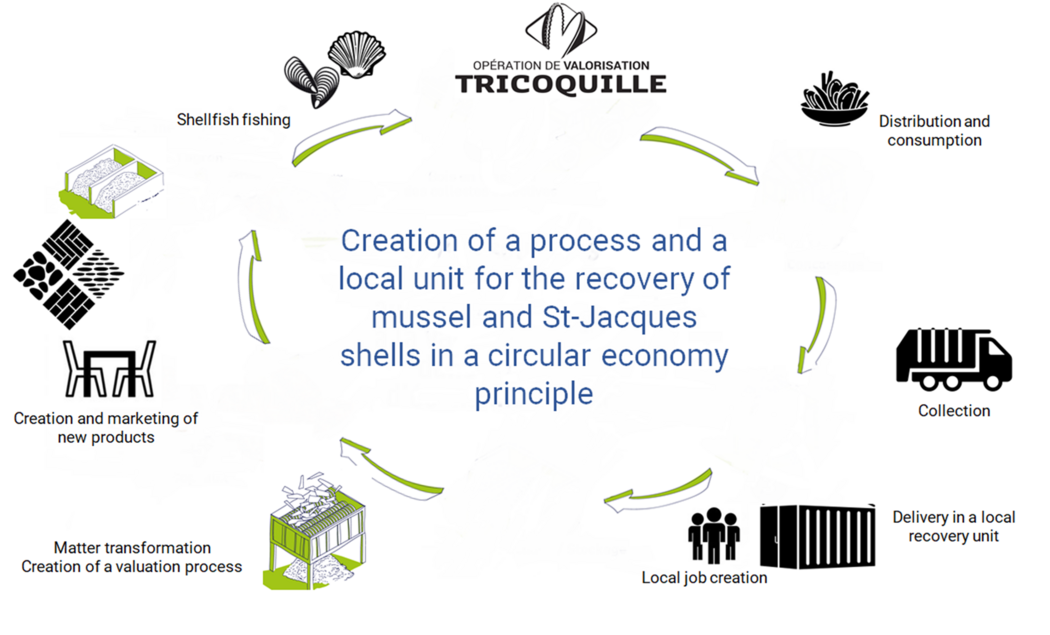The pilot
ADEME supported a study aiming at identify deposits and outlets for the shell waste of the coast of Baie-de-Somme. Following the study, the local government carried out a pilot operation for the recycling of shellfish waste involving 8 restaurants. The government now wishes to explore the possible outlets for shell waste byproducts in the tourism sector such as furnishings for restaurants and hotels, road markings for bicycle-routes or coating for cycle paths.
The pilot project addresses upstream, restaurants as shell waste providers and downstream, the local government of Baie de Somme -authority for tourism development- and the tourism sites. It aims at removing the barriers for a wide use of local shell waste by-products in the tourism sector: regulatory obstacle on the use of non-inert waste, identification of a competitive process, stimulation of tourist entrepreneurs in changing to circular practices and purchase
Origin and objective of the project
Large volume of shells are collected from restaurants and fishmongers. These Shells are buried which has a high cost and environmental impact.
The objective is therefore to have a more local supply with shellfish waste from the Hauts-de-france region and so introduce circularity in the value chain.
Evaluation meetings
Within this pilot evaluation meetings will be hold with several stakeholders. In this meetings the obstacles all along the local tourism value chain will be analysed and discussed. This will allow for setting up baselines.
A first evaluation meeting took place on the 14th of October. This meeting gathered many stakeholders involved in shellfish waste in the Hauts-de-France region (producers, recovery industries, industry associations, etc.), and allowed the actors to meet and present their activities. This first evaluation meeting brought together in total 20 stakeholders from different backgrounds: local authorities, the Hauts-de-France region, Alkern, Ecailles de mer and Etnisi: 3 industrial actors who recover scallop, oyster and mussel shells to make different kinds of products, development agencies. Several of the attendees showed a keen interest in going further and the first contacts were established. Additional discussions helped to gather more information on the actors’ current activities, namely the types of shells produced and/or recovered, the origin of the waste stream, the recovery methods used, the actors’ ambitions for the future and their current barriers. In its next steps, the project will focus on 3 actors in particular: Ecailles de Mer, Etnisi and the Baie de Somme local authority, as it was necessary to limit the scope of the project to the Baie de Somme territory to determine an achievable action plan.
In the second consultation meeting Ecailles de Mer, Etnisi and CA Baie de Somme were invited to discuss the links between their activities.



